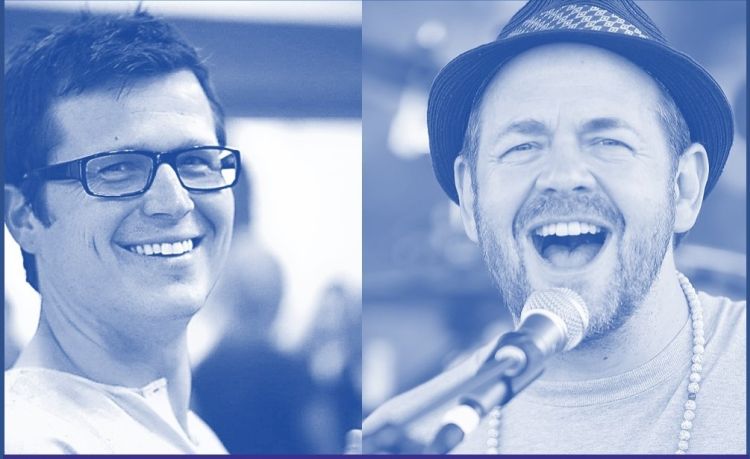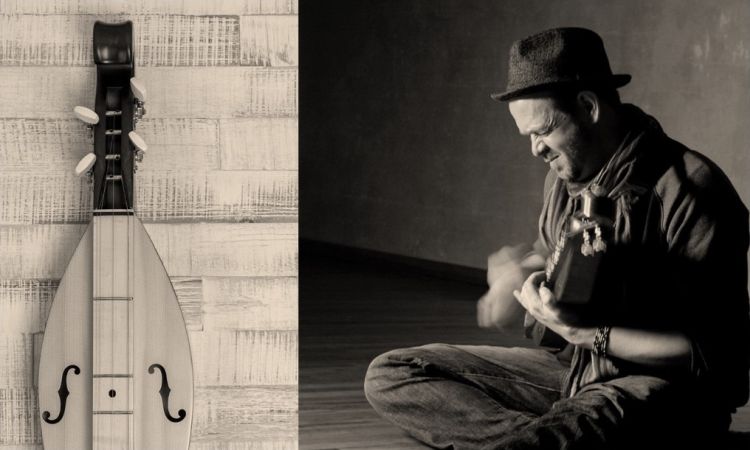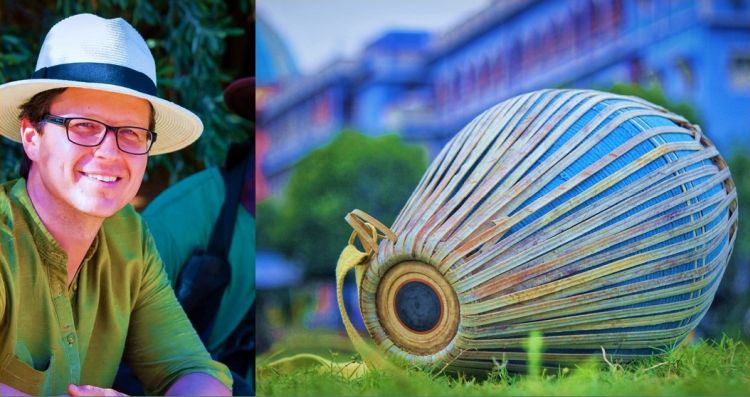Madi Das and Dave Stringer to Release New “Country and Eastern” Album
By Madhava Smullen | Окт 30, 2021

Lead singer Madi Das and producer Dave Stringer of the 2014 kirtan album Bhakti Without Borders have launched a crowdfunding campaign for a new “Country and Eastern” kirtan record.
Bhakti Without Borders featured Madi in duets with 11 female artists from around the world, and 100% of its profits went to the Sandipani Muni School in Vrindavan, India, to help educate, clothe and feed 45 underprivileged girls. The album was nominated for the 2016 Grammys, and reached audiences in 84 countries.
“Bhakti Without Borders was a lightbulb in the way I heard the music we grew up with,” says Madi, who was raised as a Hare Krishna devotee. “Dave Stringer [a well-known kirtan artist] has the unique ability to hear traditional melodies but translate them into a modern, pop, accessible format. After working with him on Bhakti Without Borders, I couldn’t stop thinking about putting traditional melodies to a verse, chorus, bridge format.”
This led to a meeting with Dave in November 2019 about a follow-up album. Writing in earnest began in April 2020 over Zoom after the pandemic hit, and both were in isolation – Madi in Australia, and Dave in California.

A host of highly accomplished artists lend their voices to the new record. (Top: left to right) Dave Stringer, Tulsi Bloom, Patrick Richey, Sheela Bringi (bottom: left to right) Justin Michael Williams, Madi Das, Corbin Jones, Allie Stringer
The new record blends familiar traditional Sanskrit and Bengali bhajans with country music and pop structures, featuring favorites like Hai Gopinath, Boro Sukher Khabor Gai, Om Namo Bhagavate / Damodarastakam, Hare Krishna, Jaya Radhe, Jaya Krishna, Jaya Vrindavan, Sita Rama, and Sri Guruvastakam. To catch the attention of the Spotify generation quickly, songs begin by launching into the mantra without any preamble, and are four to six minutes long. Yet the devotion still comes through powerfully, as on the gorgeous, heartfelt preview “Hai Gopinath.”
Both familiar and fresh, the album features traditional instruments like kartals, harmonium, and mridanga, along with instruments used in country music like pedal steel guitar, dulcimer, harmonica and a drum kit. Multi-instrumentalist Dave Stringer, who has an expanded vocal and instrumental role on the new record, plays many of these, while Madi plays the mridanga of his childhood.
Although there are no duets this time around, lead singer Madi Das is backed by a quartet of singers who add lush choral harmonies to the traditional melodies – Dave, his niece Allie Stringer, who toured with him doing kirtan; critically acclaimed entertainer and author Justin Michael Williams; and Tulsi Devi, an American-born Jamaican/Puerto-Rican singer-songwriter who was featured on Bhakti Without Borders’ track Jai Gurudev.
The diverse group of highly accomplished vocalists and musicians working on the album also includes Corbin Jones on bass, Patrick Richey on tabla and drums, and Sheela Bringi on bansuri flute and harmonium.

Dave Stringer plays the dulcimer, among many other instruments, on the new record
As the album was recorded during the pandemic, some vocals and instruments were recorded from different parts of the world using Pro Tools, with session files shared over Drop Box. Others saw musicians recording one at a time in separate rooms in Dave’s LA studio. This was quite a different experience to Bhakti Without Borders, which was recorded with a live band over a couple of weekends.
The release and campaign around the new project is also a shift. Six years after the last release, people are largely streaming music rather than purchasing digital downloads. And with Spotify paying only half a penny per stream, smaller artists are not able to recoup the cost of production. Thus the music itself is the charity this time – while Madi is donating his time and talents in seva, contributions to the campaign will go towards compensating professional musicians to make an album designed to reach not only its core audience of those familiar with kirtan and mantra music, but also a wider audience.
As with other artists today, Madi and Dave Stringer are seeking to build a different relationship with their audience – one of direct sponsorship. “It’s super important, now more than ever, that anyone who loves this kind of music supports it,” Madi says. “If we want to see this music stay in the professional recorded medium, we can’t do it alone. And any profits that do come above and beyond the costs of making the album that I receive will be channeled back into making more music.”
In exchange for their sponsorship, contributors to the new record’s Indiegogo campaign will also feel some ownership if it achieves success as Bhakti Without Borders did; and will receive a number of perks based on their donations, including a virtual meet and greet, final mix listening party, a music lesson and a private concert. At different levels they’ll also get the chance to be more intimately involved in understanding how the music is made, by hearing demo tracks, creating a more personal experience.

Madi Das plays mridanga, an instrument he grew up with, on the new album
Because an album doesn’t need to be completed all at once in the streaming era, an EP of five tracks will come first within the first half of next year, with eight more tracks in the pipeline for a total of thirteen if the campaign takes off. Music will be released to subscribers and supporters first, and later stream out to Spotify.
“I hope the people who back the project will enjoy the music and be inspired by it,” Madi says. “I would love the broader mantra music community to enjoy it; but also would like it to make it into popular culture to some degree. We want to push the narrative with each project. We’re not making the album to win a Grammy; but if we can see our music, based on its merits, recognized in public forums, that’s a huge, helpful endorsement for our tradition.”
“It’s important to remember that yoga culture has made a journey from being a cult thing to being a global thing, to the point where meditative traditions are starting to have real popular resonance,” says Dave Stringer. “An interesting byproduct of the pandemic is that a lot of people have had to sit with themselves in a sustained way, more than they ever have before. That has produced a renewed interest in meditative and philosophical traditions. And the Vaishnava tradition has a lot to contribute to that conversation.”
To learn more about and support Madi Das and Dave Stringer’s new kirtan album, and to hear some song previews, visit: bhaktiwithoutborders.com















